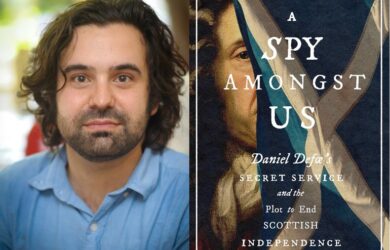Ayala Panievesky has published a study on how journalists respond to populist anti-media campaigns
Journalists' response to populist rhetoric risks encouraging self-censorship and restricting press freedom.
Ayala Panievsky
Many journalists have adopted a policy of leaning to the right in the face of anti-media populism, according to a new study based on the situation in Israel.
The study, The Strategic Bias: How Journalists Respond to Antimedia Populism, published in the International Journal of Press/Politics, is by Gates Cambridge Scholar Ayala Panievsky. It looks at the rise in populist campaigns against the media and how journalists adopt and respond to them.
Based on a thematic analysis of 45 semi-structured interviews with leading Israeli journalists who have been publicly targeted by Israel’s Prime Minister, Benjamin Netanyahu, it suggests that, while most interviewees said underlining the importance of objective reporting was the best response to antimedia populism [with objectivity defined as ‘political balance’], many of them had applied a “strategic bias” to their reporting, intentionally leaning to the Right in an attempt to refute the accusations of media bias to the Left. One example given is the dropping of the word ‘occupation’ to describe the Palestinian situation.
The study says strategic bias is a form of ideological bias, where journalists knowingly slant the news to favour one candidate, party or political camp – regardless of their personal beliefs and without informing their audience – as a response to challenges to their public credibility and legitimacy in order to prevent further criticism and ‘media bashing’. It states that “leaning to the Right was not meant to correct an actual media bias, but rather to perform a ‘correction’ for the bias which they believed their audience believed to exist, as a result of Netanyahu’s accusations”.
The study says this strategy was shaped by interviewees’ perceived helplessness in the face of Netanyahu’s extensive use of social media, a phenomenon called “the influence of presumed media impotence”. It says journalists used the expression “lose–lose situation” to describe their position and “win–win situation” to describe Netanyahu’s. The study says they “appeared to believe that their potential responses to Netanyahu’s rhetoric were limited and their chances of winning the debate slim”.
The research points at the potential ramifications of strategic bias for journalism and democracy, claiming that strategic bias might advance right-wing populism while also narrowing the sphere of legitimate controversy, contributing to further restrictions on press freedom in the future.
Panievsky [2018], who is doing a PhD in Sociology, states: “The potential implications of these initial findings are unnerving. Antimedia populism poses an exceptional challenge for professional journalism, with populists using accusations of bias to frame journalists as enemies. My findings, however, suggest that journalists’ strategies to handle this challenge might be as concerning. First, when journalists intentionally but covertly tilt the news rightwards, the political discursive playing field becomes uneven. This is not a case of unwarranted balance in reporting on an unbalanced reality, which scholars warned against in the past, but a case of wittingly imbalanced reporting, aimed to signal balance rather than practise it.
“More concerningly, as demonstrated through journalists’ avoidance of the term “occupation” with regards to Israel’s control over the Palestinian Territories, the strategic bias may serve to silence and censor views that oppose or challenge the antimedia populist, shifting them from the sphere of legitimate controversy to the sphere of deviance. Thus, journalists’ response to populist rhetoric risks encouraging self-censorship and restricting press freedom.”
*Picture credit: Wikimedia commons and Daniel R. Blume from Orange County, California, USA.












